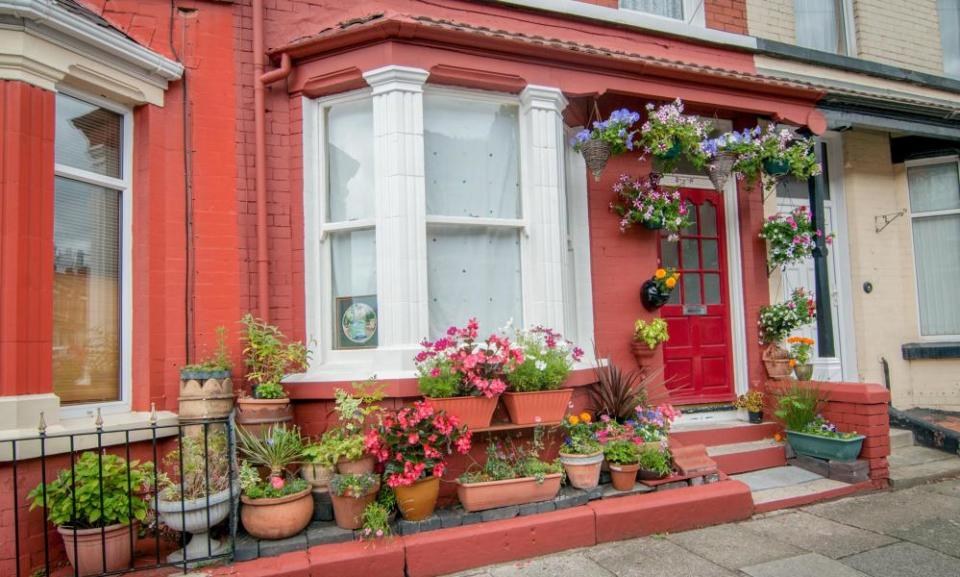John Lennon house and Lewis Hamilton mansion on offshore ownership register
John Lennon’s first home, a £16.5m London mansion owned by Lewis Hamilton and the illusionist Uri Geller’s country house have emerged among properties owned via offshore companies, as part of a government transparency drive.
Hamilton, Geller and Lennon’s widow, Yoko Ono, all declared themselves to be the beneficial owners of overseas companies that hold property in the UK. Their disclosures are among thousands submitted to a new register that the government says will help ensure HMRC collects the right amount of tax by improving transparency around property ownership.
Holding property through offshore companies is legal. All those named as beneficial owners on the register have complied with their legal obligations to declare the holdings.
The register clears up doubt surrounding the ownership of Lennon’s childhood home, which was previously reported to have been bought by a mystery Beatles fan via a telephone auction.

Land Registry records show that Newcastle Road LLC, incorporated in the US state of Delaware, bought the property in 2013. While there has previously been speculation that Ono was behind the purchase, new disclosures made to Companies House confirm she is the beneficial owner of Newcastle Road LLC.
Ono paid £480,000 for the property in Wavertree, Liverpool, in 2013, reportedly more than three times the opening asking price of £150,000. A spokesperson did not return a request for comment.
The UK government’s new register of overseas entities was created to improve transparency around British property ownership and help the authorities ensure the right amount of tax is paid. Holding property through offshore companies is legal. Owners of property through offshore companies may do so for many reasons, from tax benefits to privacy or liking the stability or simplicity of a certain offshore tax regime. In the words of the government, offshore taxation is “complex”.
But ministers have concluded transparency around foreign ownership of UK property is an important step in improving the operation of the tax system. “Whilst the vast majority of people and businesses pay the right amount of tax, mistakes are made,” the government said in its explanation of why the register was being introduced. The register of overseas entities appears to be a big step forward in transparency, with thousands of owners, including the ones reported on by the Guardian, coming forward to declare their properties. All those named as beneficial owners on the register have complied with their legal obligations to declare their holdings. About a quarter of the companies making declarations so far still do not reveal their ownership publicly, because trusts are only required to give information on their beneficiaries to the tax authorities.
The Guardian has previously reported on offshore ownership of companies via leaks such as the Paradise papers and the Pandora papers, leading to governments including the UK government applying greater scrutiny to international tax affairs and offshore secrecy. The Guardian believes shining a light on the property in the UK held through foreign and offshore firms by rich, politically connected and influential people enhances that process of transparency and allows readers to better understand the power structures that affect their daily lives.
The register also reveals Hamilton declared himself the owner of three companies that were incorporated in the British Virgin Islands, with correspondence addresses in Guernsey. The company structure is understood to have been arranged to protect the Formula One driver’s privacy.
It has previously been reported that Hamilton paid £16.5m for a central London mansion in 2017. Details on the register indicate that the property is held via a company incorporated in the BVI. Hamilton also has two other offshore entities that own two more UK properties.

A spokesperson for the seven-time world champion said: “The ownership of Lewis Hamilton’s UK properties via the companies listed on the register of overseas entities does not give him any UK tax advantage or other financial benefit. Lewis is supportive of the new register, demonstrated by his inclusion of the UK properties and associated companies, along with his beneficial ownership on the register.”
Geller, known for his spoon bending and bold claims about his ability to affect the outcome of football matches, also made a declaration to the register. He owns a Berkshire property via Sonning Riverside Estates in the BVI.
An entry on the website of the upmarket estate agent Savills indicates that the eight-bedroom country mansion on the banks of the River Thames is available to rent. He reportedly tried to sell the property in 2015.
Tenants can expect a home cinema, gym, vault and wine cellar, as well as an outdoor heated swimming pool, tennis court, space to park four cars, a helipad and an “interesting pyramid” in the garden. Geller did not return requests for comment.

 Yahoo News
Yahoo News 
